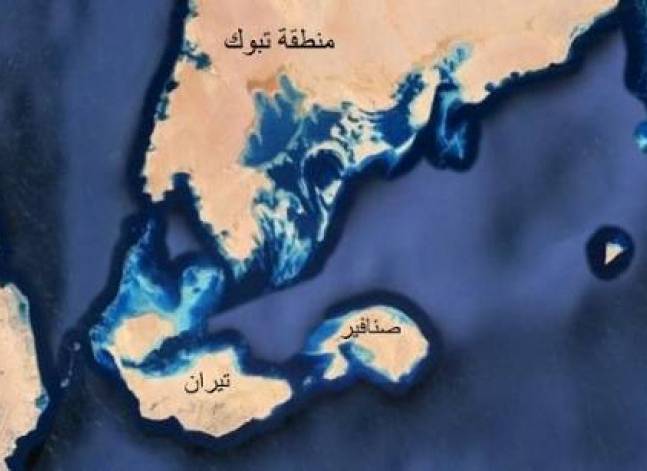Latest NEWS
- Aswat Masriya, the last word
- Roundup of Egypt's press headlines on March 15, 2017
- Roundup of Egypt's press headlines on March 14, 2017
- Former Egyptian President Hosni Mubarak to be released: lawyer
- Roundup of Egypt's press headlines on March 13, 2017
- Egypt's capital set to grow by half a million in 2017
- Egypt's wheat reserves to double with start of harvest -supply min
- Roundup of Egypt's press headlines on March 12, 2017
Lawyers discuss reasons behind court ruling voiding islands' agreement
Defence lawyer Khaled Ali presenting case documents in a press conference on Jun. 22, 2016. ASWATMASRIYA/ Ahmed Hamed
CAIRO, Jun 22 (Aswat Masriya) – The defence team in the Tiran and Sanafir islands case organised a press conference on Wednesday where they discussed the reasons behind Tuesday's court ruling that annulled the maritime border demarcation agreement signed in April between Egypt and Saudi Arabia.
Egypt's administrative court annulled on Tuesday the agreement, which stipulated that the two strategic islands, Tiran and Sanafir, fall within Saudi territorial waters.
Hours later, the State Lawsuit Authority appealed against the administrative court's decision.
"A historical representation using maps in addition to a recount of events and changes that have been witnessed in this regard proves Egypt's ownership of the two islands," defence lawyer Khaled Ali said.
Egypt's 2014 constitution prohibits the cessation of any part of the state's territories and voids any agreement that violates this principle, Ali added.
Ali continued to present evidence in the form of maps and historical accounts that prove Egypt's uninterrupted sovereignty practiced over the Red Sea islands.
In its reasoning, the court reached its decision based on the various historical documents presented as well as the political realities that include the subjection of Tiran and Sanafir to Egyptian laws and regulations.
The court relied on article 151 of Egypt's current constitution which states that "in all cases, no treaty may be concluded which is contrary to the provisions of the Constitution or which results in ceding any part of state territories."
The court also reached the conclusion that the signing of the agreement was considered an administrative decision that is subject to the rule of law and the jurisdiction of the courts.
According to article 97 of the constitution, "it is prohibited to immunize any administrative act or decision from judicial review."
The court reasoned that it reserves the right to distinguish whether the signing of the agreement was to be considered an act of sovereignty or an administrative decision, stressing that the lack of jurisdiction is an exception to the rule established in Article 97.
"The theory of the acts of sovereignty is not a fixed theory, but a flexible one and is characterised by being inversely proportional to freedoms and democracy, thereby widening in scope under dictatorships and becoming limited under democracies," the court said.
The agreement was signed at a time when Saudi King Salman bin Abdel Aziz was on his first official visit to Cairo in April.
Tuesday's ruling came to annul the agreement signed by Egypt's representative, who is the Prime Minister in this case, and affirm Egypt's continued sovereignty over the islands.
The ruling has been appealed and the parliament has yet to voice its decision on the agreement.
















